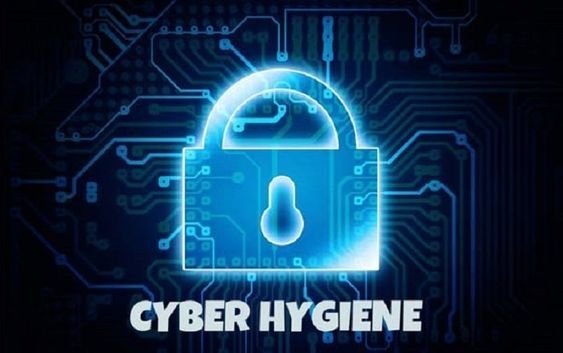Cyber Hygiene Practices – Safeguarding Your Digital Presence

In today’s digital age, where technology is integrated into our daily energies, securing cyber hygiene techniques is essential for protecting personal and release information. With cyber threats advancing continuously, it’s necessary to set guarding standards to defend individuals from potential breaches and attacks. This article explores the significance of cyber hygiene practices and provides available tips to improve online security.
Introduction to Cyber Hygiene
Cyber hygiene guides the practices and estimates individuals and organizations embark on to maintain a healthy and secure online actuality. It contains diverse aspects, including password management, software updates, understanding of phishing attempts, data backup, and the use of virtual private networks (VPNs). By merging these practices into daily patterns, individuals can decline the dangers connected with cyber threats and safeguard their digital approval.
Importance of Cyber Hygiene Practices
In today’s digital landscape, where our energies are progressively involved with technology, the effectiveness of cyber hygiene practices cannot be extended. Cyber hygiene practices operate as the basis of online security, suggesting vital protection against quantities of cyber threats and subjection. These practices are essential for safeguarding personal and sensitive information, maintaining the unification of digital help, and protecting the confidentiality of online exchanges.

Cyber hygiene practices are crucial for several reasons:
Protection of Personal Data: In an era characterized by the digital modification of personal information, protecting responsive to data has become essential. Cyber hygiene practices play a pivotal character in protecting private data from unapproved approaches, misuse, or usage by cybercriminals.
Mitigation of Cyber Threats: Cyber threats such as malware, phishing attacks, and encryption pose considerable threats to individuals and groups. By embracing the most suitable cyber hygiene practices, individuals can decrease the expectation of falling victim to these threats and minimize the creditable development of cyber-attacks.
Preservation of Online Privacy: With the increasing majority of online management and data following, maintaining privacy in the digital empire has become increasingly challenging. Cyber hygiene practices help individuals maintain standards for their online privacy by minimizing the collection and direction of personal information.
Enhancement of Digital Resilience: Cyber hygiene practices contribute to the overall stability of digital systems and networks by decreasing exposures and strengthening security measures by regularly updating software, executing strong password policies, and remaining alert. By preparing their digital protection and relieving the danger of security breaches, individuals can prepare for potential threats.
Promotion of Trust and Confidence: Adhering to cyber hygiene techniques not only protects individuals’ digital investments but also contributes to the overall trust and conviction in the online ecosystem. By establishing responsibility for cybersecurity best practices, someone can encourage trust among equals—colleagues and online communities—promoting a safer and more secure digital condition for all.
In summary, cyber hygiene practices are essential because they can protect confidential data and reduce cyber threats. They can also maintain online privacy, improve digital stability, and encourage trust in the online ecosystem. By integrating these practices into their digital practices, individuals can protect their online existence and guide the digital landscape with more effective confidence and security.

Best Cyber Hygiene Practices
Executing the best cyber hygiene practices is crucial for maintaining a secure digital existence. These practices are proactive measures to season your online securities and reduce the risk of falling victim to cyber threats. The term “best cyber hygiene practices” refers to a set of show strategies and protocols that individuals can adopt to enhance their online security posture effectively.
Here’s a deeper look into what constitutes the best cyber hygiene practices:
Strong Password Management: Creating and executing solid and unique passwords for separate online accounts is the basis of good cyber hygiene. Use a mix of letters, numbers, and symbols, avoiding quickly guessable information like birthdays or pet names.
Regular Software Updates: Maintaining your software, operating systems, and applications up to date with the most delinquent trends and security impasses is crucial to addressing known susceptibilities. Regular updates help facilitate security gaps that cyber offenders may manipulate to achieve unapproved access to your devices or data.
Phishing Awareness: Phishing remains one of the multiple available cyber threats, with attackers using secret tactics to deceive individuals into disclosing sensitive information. Recognizing and avoiding phishing cracks is essential for maintaining secure digital conditions. Look out for insecure emails, messages, or links and prove the authenticity of communication from trusted authorities.
Data Backup: Regularly backing up essential folders and data is necessary to reduce the impact of data loss or encryption attacks. Best practices include:
- Establishing a consistent backup schedule.
- Storing backups securely offline or in encrypted cloud storage.
- Testing backup restoration procedures to ensure data integrity.
Utilizing VPNs: Virtual Private Networks (VPNs) offer an added coating of security by encrypting internet traffic and personating users’ IP addresses. Best practices for VPN usage include:
- Choosing a reputable VPN service provider.
- Ensuring robust encryption protocols.
- Using VPNs when connected to public Wi-Fi networks or gaining exposed information online.
By adhering to these best cyber hygiene practices, individuals can significantly improve their online security position and minimize the endangerment of falling victim to cyber threats. Incorporating these practices into their digital techniques can help them navigate the online landscape with greater confidence and peace of mind.

Implementing Cyber Hygiene in Daily Routine
Implementing cyber hygiene in your everyday practice involves seamlessly integrating best practices for online security into your everyday movements. It’s not just about periodic efforts to maintain your defenses; instead, it’s about producing practices. Consistently grade the protection of your digital investments and personal information.
Here’s a closer look at what it means to implement cyber hygiene in your daily routine:
Password Management Tools: Incorporating password management tools into your daily practice can clarify the process of creating, safeguarding, and operating reliable and unique passwords for all your online statements. By utilizing tools like LastPass, Dashlane, or 1Password, you can generate complex passwords and steadfastly store them. Approach them whenever required, all while underestimating the insecurity of password-related security happenings.
Setting up Automatic Updates: Make it a habit to authorize automatic updates for your devices, serving systems, and applications. By doing so, you guarantee that required security restoration and software updates are installed rapidly. You are reducing the window of direction to potential cyber threats. This energetic approach to software maintenance helps keep your digital environment secure without essential constant manual intervention.
Regular Backup Schedule: Selecting a regular backup program for your essential files and data ensures that you’re prepared for unpredictable circumstances such as hardware failures, malware conditions, or data violations. Make it a practice to back up your data consistently, whether it’s daily, weekly, or monthly, and store backups steadfastly. Regularly testing backup restoration techniques also ensures that your data remains accessible and entire when needed.
Choosing the Right VPN Service: Incorporate virtual private networks (VPNs) into your daily practice, specifically when examining the Internet from public Wi-Fi networks or executing sensitive online activities. A respected VPN service provider offers solid inscribe protocols, has an exacting no-logs policy, and has an extensive server network.
By containing these cyber hygiene practices in your daily routine, you can develop a proactive. Approach to online security that grades the protection of your digital help and personal information. Consistency is critical to making cyber hygiene a traditional part of your daily activities. You can navigate the digital landscape with more significant confidence and strength against cyber threats.

Cyber Hygiene at Work
In workplace cybersecurity, suitable cyber hygiene is vital for safeguarding data, critical systems, and overall security posture. At work, cyber hygiene includes practices to reduce threats, promote security awareness, and ensure compliance with industry standards.
Here’s a deeper search into what cyber hygiene at work entails:
Employee Training Programs: Executing complete cybersecurity education and training programs for workers is essential for encouraging security awareness and a civilization of cyber hygiene within the organization. These programs should include topics such as remembering phishing, recognizing malware, and adhering to protection policies and techniques.
Secure Network Infrastructure: A secure network infrastructure is essential for safeguarding revealed data and discouraging unauthorized entrance to concerted resources. It impacts key network security measures like firewalls, intrusion detection systems, intrusion prevention systems, and access controls, reducing real-time threats.
Enforcing Security Policies and Procedures: Establishing and executing security policies and practices is essential for securing compatible adherence to cyber hygiene best practices beyond the organization. These policies include those connected to password management, data encryption, permit control, incident response, and adequate use of technology resources. Regular employee training and awareness initiatives help support these policies and ensure compliance.
Incident Response Planning: Developing and maintaining a complete incident response plan is essential for actually reacting to and reducing cybersecurity incidents when they occur. This plan should outline positions and responsibilities, contact protocols, escalation procedures, and steps for containing, analyzing, and remedying security breaches. Regularly testing and updating the happening response plan provides its effectiveness in the possibility of a cyber-attack or data violation.
By making cyber hygiene a top priority and dynamic measures against cyber threats, organizations can minimize risks and protect data. Promoting a culture of security awareness and increasing security controls are vital for maintaining ideal cyber hygiene in the workplace.

Conclusion
In conclusion, adopting and maintaining vital cyber hygiene practices is essential for protecting personnel and exposure in a connected world. These measures include strong password management, frequent software updates, understanding of phishing, and data backup. VPN use can help individuals and organizations improve their online security posture and decrease the danger of cyber attacks.
FAQs
How can I improve my password management techniques?
You can improve your password management techniques by utilizing unique, involved passwords for separate performances, operating password supervisors, and qualifying two-factor verification where achievable.
What are some signs of a phishing attempt, and how can I spot them?
Signs of a phishing attempt include:
- Suspicious sender addresses.
- Urgent or threatening language.
- Requests for personal information.
- Grammatical errors in emails or messages.
Be cautious and verify the authenticity of communications if in doubt.
Why is regular software updating necessary for cybersecurity?
Regular software updates are paramount for managing known exposures and protecting against appearing threats. They fix security defects and improve the overall stability of your devices and systems.
How can organizations encourage cyber hygiene among workers?
Organizations can promote cyber hygiene through extensive activity programs, secure network arrangements, and regular security audits. Educating workers about cybersecurity best practices and encouraging a civilization of security awareness is paramount.








